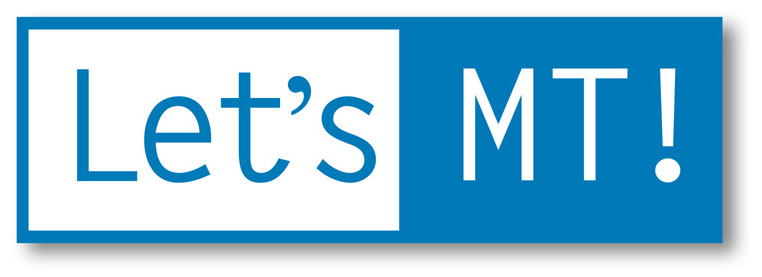Upcoming LetsMT! workshops
Customized Machine Translation – Platform, Tools and Application
LetsMT! cloud platform and ACCURAT tools
Sunday, 25 March 2012
Monaco, Le Méridien Beach Plaza, Zephyr Ballroom, 4th Floor
Presenters: Andrejs Vasiļjevs (Tilde), Indra Sāmīte (Tilde), Marko Tadić (University of Zagreb), Raivis Skadiņš (Tilde), Gregor Thurmair (Linguatec), Mateja Verlič (Zemanta), representative of DG Translation, European Commission.
This free workshop is for localization industry practitioners who want to stay on top of developments in the machine translation (MT) field. Learn how to make MT work for you and increase your translation productivity, provide faster service to your customers, and give your company a competitive edge.
You will see innovative technologies focused on empowering MT users and enabling MT for less-resourced languages. These are the results of two large-scale pan-European university and industry collaboration projects LetsMT! and ACCURAT, supported by EU R&D FP7 and ICT-PSP Programmes.
Come and learn how to benefit from the self-service “MT factory” in the cloud at letsmt.com where you can build customized MT systems. ACCURAT tools will help you to obtain so-needed parallel data by collecting it from the multilingual web. We will also present specific applications for custom MT, such as sentiment analysis of multilingual newsfeeds, use of SMT systems for authoring tools, enhancing rule-based MT systems with data from comparable corpora, and use of MT in real world localization processes, with a particular focus on smaller languages.
You will have the opportunity to meet and learn from top European MT researchers, as well as business practitioners who use MT in translation on a daily basis. More info at the workshop webpage.
SPECIAL OFFER: COME AND GET AN EXCLUSIVE FREE 2 MONTHS TRIAL TO MAKE YOUR CUSTOM MT SYSTEMS
You can register for this event when registering for GALA 2012. If you have already registered for the conference, you can simply return to the online store and add this free session to your registration. For assistance, please contact Allison Ferch.
The agenda of workshop is following:
9:00 Andrejs Vasiļjevs (Tilde) - "The Quest for Better MT"
9:10 Achim Ruopp (Digital Silk Road) - "Modern Ubiquitous Machine Translation–Threat or Opportunity?"
9:35 Indra Sāmīte (Tilde) - "LetsMT! and ACCURAT at Your Service"
9:50 Marko Tadić (Univ. of Zagreb, FFZG) "ACCURAT = More Data", Raivis Skadiņš (Tilde) "LetsMT! Do-it-Yourself Demo"
10:30 coffee break
10:50 CASES
Gregor Thurmair (Linguatec) - "Creating Lexicon Entries for Narrow Domains from Comparable Corpora"
Mateja Verlič (Zemanta) - "Using SMT in the Blogging Environment"
Andrejs Vasiļjevs (Tilde) - "Real world Evaluation of SMT in Localization"
11:30 PANEL "Customized MT: Truth or Myth?" Marko Tadic (moderator)
Achim Ruopp
Andrejs Vasiļjevs
Indra Sāmīte
Gregor Thurmair
12:15 light lunch
· 2012-02-10 ·
5th Workshop on Building and Using Comparable Corpora
Language Resources for Machine Translation in Less-Resourced Languages and Domains
Saturday, 24 May 2012
Co-located with LREC2012 conference
Lütfi Kirdar Istanbul Exhibition and Congress Centre
In the language engineering and the linguistics communities, research in comparable corpora has been motivated by two main reasons. In language engineering, it is chiefly motivated by the need to use comparable corpora as training data for statistical NLP applications such as statistical machine translation or cross-lingual retrieval. In linguistics, on the other hand, comparable corpora are of interest in themselves by making possible inter-linguistic discoveries and comparisons. It is generally accepted in both communities that comparable corpora are documents in one or several languages that are comparable in content and form in various degrees and dimensions. We believe that the linguistic definitions and observations related to comparable corpora can improve methods to mine such corpora for applications of statistical NLP. As such, it is of great interest to bring together builders and users of such corpora.
The scarcity of parallel corpora has motivated research concerning the use of comparable corpora: pairs of monolingual corpora selected according to the same set of criteria, but in different languages or language varieties. Non-parallel yet comparable corpora overcome the two limitations of parallel corpora, since sources for original, monolingual texts are much more abundant than translated texts. However, because of their nature, mining translations in comparable corpora is much more challenging than in parallel corpora. What constitutes a good comparable corpus, for a given task or per se, also requires specific attention: while the definition of a parallel corpus is fairly straightforward, building a non-parallel corpus requires control over the selection of source texts in both languages.
Parallel corpora are a key resource as training data for statistical machine translation, and for building or extending bilingual lexicons and terminologies. However, beyond a few language pairs such as English- French or English-Chinese and a few contexts such as parliamentary debates or legal texts, they remain a scarce resource, despite the creation of automated methods to collect parallel corpora from the Web. To exemplify such issues in a practical setting, this year’s special focus will be on
Language Resources for Machine Translation in Less-Resourced Languages and Domains
with the aim of overcoming the shortage of parallel resources when building MT systems for less-resourced languages and domains, particularly by usage of comparable corpora for finding parallel data within and by reaching out for “hidden” parallel data. Lack of sufficient language resources for many language pairs and domains is currently one of the major obstacles in further advancement of machine translation. More details at the workshop web page.
· 2012-03-10 ·
